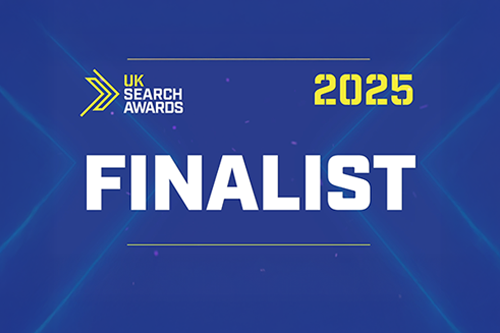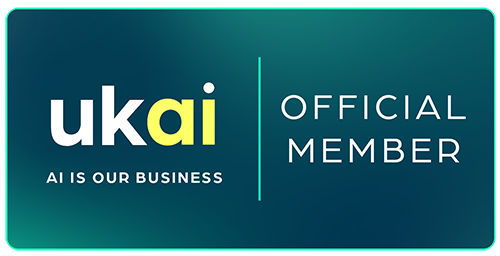By integrating these virtual assistants chatbot customer service, businesses can automate routine tasks, provide instant 24/7 automated customer support, reduce operational costs, enhance customer experiences, collect valuable data insights, and unlock new levels of efficiency and scalability - making AI chatbots an indispensable technology for any forward-thinking company.
Why are AI chatbots different to standard chatbots which have been around for years?
Ai chatbots are different because they plug into LLMs like OpenAI meaning they can understand human responses and interactions much better. Previous chatbots tended to work with binary answers and leading the user down a certain pathway with little agility to adjust and adapt should someone say or need something expected.
Because of this they can have much more meaningful conversations and respond better with the right training and a clear set of goals in mind.
Reasons to Embrace AI Chatbots in Your Business
1. 24/7 Customer Support
One of the most significant advantages of AI chatbots in chatbot customer service is their ability to provide round-the-clock automated customer support. Unlike human agents, chatbots never sleep, ensuring that customers can get their queries addressed promptly, regardless of the time or day.
2. Cost Savings
Implementing AI chatbots can significantly reduce operational costs for businesses. By automating routine tasks and handling a substantial portion of customer inquiries through chatbot customer service, chatbots can minimise the need for human resources, resulting in substantial cost savings.
3. Improved Customer Experience
AI chatbots can enhance the overall customer experience by providing instant responses, personalised assistance, and consistent service across multiple channels. With their ability to handle high volumes of inquiries simultaneously, AI chatbots can significantly reduce wait times and improve customer satisfaction.
4. Scalability and Efficiency
AI chatbots are highly scalable and can handle a large number of concurrent conversations without compromising on quality or response time. This makes them ideal for businesses experiencing rapid growth or those with fluctuating demand.
Implementing AI Chatbots: Considerations and Challenges
While the benefits of AI chatbots are numerous, it's essential to consider potential challenges and limitations during implementation:
1. Initial Investment
Developing and deploying AI chatbots can require significant upfront investment in technology, resources, and training data. However, the long-term cost savings and operational efficiencies often outweigh the initial investment.
Expect to pay a minimum of £500+ for a basic chatbot system for customer service and automated customer support.
2. Integration with Existing Systems
Integrating AI chatbots with existing business systems, such as customer relationship management (CRM) platforms, can be complex and may require specialised expertise.
Ensuring seamless integration is crucial for maximising the benefits of AI in customer engagement.
3. Natural Language Processing Limitations
While AI chatbots have come a long way in understanding natural language, they may still struggle with complex queries or context-specific nuances, leading to potential misunderstandings or incorrect responses.
Continuous training and updates are necessary to enhance their capabilities.
4. Data Privacy and Security
Businesses must ensure that AI chatbots adhere to data privacy regulations and implement robust security measures to protect sensitive customer information.
5. User Adoption and Trust
Some customers may initially be hesitant to interact with AI chatbots, preferring human interactions. Building trust and promoting user adoption through effective communication and training can be crucial for successful implementation.
Highlighting the ai chatbot benefits, such as 24/7 support and instant responses, can help in gaining user acceptance.
How AI Enhances Customer Engagement
Integrating AI chatbots into customer engagement strategies can revolutionise how businesses interact with their customers. Here’s how AI can enhance customer engagement:
1. Personalised Interactions
AI chatbots can analyse customer data to offer personalised recommendations and responses. By understanding user preferences and behaviour, chatbots can provide tailored experiences that make customers feel valued and understood, enhancing overall chatbot customer service.
2. Proactive Engagement
AI chatbots can initiate conversations based on customer behaviour and context. For instance, if a customer lingers on a product page, the chatbot can proactively offer assistance or suggest complementary products, enhancing the customer's journey and providing automated customer support. This proactive approach is one of the key AI chatbot benefits.
3. Multi-Channel Support
Customers interact with businesses across various platforms, including websites, social media, and messaging apps. AI chatbots can provide consistent support across all these channels, ensuring seamless customer engagement and chatbot customer service regardless of the platform.
This multi-channel support highlights the power of ai in customer engagement.
4. Real-Time Feedback and Surveys
AI chatbots can conduct real-time surveys and gather feedback from customers immediately after an interaction. This helps businesses quickly identify areas for improvement and respond to customer needs more effectively, making the most of automated customer support capabilities.
5. Streamlined Communication
With AI chatbots handling routine inquiries and tasks, human agents can focus on more complex issues, leading to more efficient and effective customer service. This streamlined approach enhances overall customer satisfaction and engagement, showcasing the significant ai chatbot benefits in modern business operations.
How can I use AI Chatbots in my business?
Website Live Chat with AI Chatbots
One powerful application of AI chatbots is providing live chat support directly on your website. According to Forrester, 57% of consumers are willing to use chatbots for simple tasks like getting product pricing or delivery rates.
By implementing a chatbot, businesses can offer immediate assistance, answering common questions and guiding customers through the sales funnel without human intervention. Studies show that live chat can boost conversion rates by over 20%.
Using SMS Chatbots for Sales Outreach
Have an old database of leads that you never managed to get hold of or didn't close to a sale?
AI chatbots can also be deployed as "SMS sales agents" to connect with prospects through text messaging. With 90% of leads preferring SMS over voice calls (plus the time and resource saving on your end), chatbots provide a non-invasive way to warm up cold data and nurture existing leads.
Gartner predicts that by 2025, proactive chatbots will handle 70% of initially simple conversations. Leveraging SMS chatbots allows companies to scale their outreach efforts cost-effectively while providing a personalised touch.
Improving contact rates & nurturing leads
Not managing to get hold of 50% of your enquiries? It’s not as uncommon as you think! Try getting an AI powered SMS sales agent to kick in on non contactable leads after 3-4 days. We’ve seen AI chatbots re-open up to 25% of these enquiries which likely would have gone completely cold without this interjection.
If you have softer conversion types too like webinar attendees, guide downloads, event sign ups and more then use a bot to warm these up post event to book calendar appointments after the event/download to avoid having sales teams dialling for hours!
7 steps on how to build an AI Chatbot
Did you know you can build yourself an AI chatbot in under a week? They are more accessible than ever. Here’s how to start:
1. Define the Goals and Use Cases
Start by clearly outlining the purposes and scenarios where your AI chatbot will be used. Will it be for customer support, sales, FAQ assistance? Determine the types of conversations it needs to handle.
2. Gather Training Data
Collect data that covers the kinds of questions and statements your users might make. This can include FAQ documents, conversation logs, and sample dialogs. The more quality data, the better your chatbot will understand users.
3. Choose a Platform
There are many user-friendly platforms and tools that allow you to build AI chatbots without extensive coding. Give us a shout if you’d like some recommendations but some good go to’s for us are Leadsolve, Zappychat, Closebot & Gohighlevel.
4. Build the Knowledge Base
Use the training data to create a knowledge base that contains the information your AI chatbot needs to draw from to have natural conversations.
5. Design the Personality
Give your AI chatbot a consistent personality, tone, and visual style that fits your brand. This helps create an engaging user experience.
6. Integrate and Deploy
Once built, integrate your AI chatbot into the desired channels like your website, app, SMS, voice platforms etc.
7. Test and Refine
Get users to test out your chatbot and provide feedback. Use this to continuously expand its knowledge, improve response quality, and refine the experience.
The process involves an upfront investment but skips heavy technical coding. Many visual builders and templates make it easier to create functional AI chatbots.
How much do AI chatbots cost?
Depending on its use case chatbots can cost anywhere from £100 - £10,000 plus. However if you’re looking for something basic to get started like an SMS lead nurturing bot it can cost somewhere from £1-£5k to build (lower if you have developer support), some form of hosting fee and 1-2p per text message.
For a live chat on site it can be cheaper than the above.
Wrap up
In conclusion, AI chatbots are transforming the business landscape by enabling efficient, personalisedpersonalized, and cost-effective customer interactions. By embracing this technology, businesses can gain a competitive edge, streamline operations, and provide exceptional customer experiences.
As AI and natural language processing capabilities continue to evolve, the potential applications and impact of chatbots will only continue to grow, making them an essential component of any forward-thinking business strategy.
If you’d like help building a bot of your own, or just want some advice or tips please do Contact us.











































